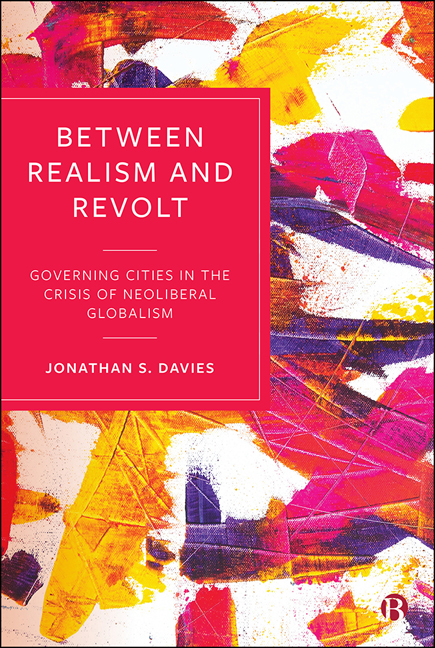Book contents
- Frontmatter
- Dedication
- Contents
- List of Tables
- Contributing Investigators
- Acknowledgements
- Preface
- Introduction
- 1 Studying Urban Political (Dis)Orders
- 2 Dynamics of Crisis, Neoliberalisation and Austerity
- 3 Austerity and State Rescaling
- 4 Consolidating Neoliberal Austerity Regimes
- 5 Regime Divergence and the Limits of Austere Neoliberalism
- 6 Resisting Austerity: Resonant Solidarities and Small Wins
- 7 The ‘Activity of Ruling Groups’: Containment, De-mobilisation and Fragmentation
- 8 Reading the Conjuncture: (Dis)Ordering Dynamics in the Crises of Neoliberal Globalism
- Afterword: Into the Pandemic
- Notes
- References
- Index
3 - Austerity and State Rescaling
Published online by Cambridge University Press: 05 January 2022
- Frontmatter
- Dedication
- Contents
- List of Tables
- Contributing Investigators
- Acknowledgements
- Preface
- Introduction
- 1 Studying Urban Political (Dis)Orders
- 2 Dynamics of Crisis, Neoliberalisation and Austerity
- 3 Austerity and State Rescaling
- 4 Consolidating Neoliberal Austerity Regimes
- 5 Regime Divergence and the Limits of Austere Neoliberalism
- 6 Resisting Austerity: Resonant Solidarities and Small Wins
- 7 The ‘Activity of Ruling Groups’: Containment, De-mobilisation and Fragmentation
- 8 Reading the Conjuncture: (Dis)Ordering Dynamics in the Crises of Neoliberal Globalism
- Afterword: Into the Pandemic
- Notes
- References
- Index
Summary
Introduction
One of the most important, perhaps neglected facets of urban regime analysis is the relationship between tiers of government and the functional and territorial jurisdictions of public and quasigovernmental authorities. These facets overlap in that relations between tiers of the state intersect with the territorial jurisdictions of municipalities, city-regions and other public agencies operating in urban areas. These, in turn, are more or less densely consolidated, concentrated, dispersed, poly-nucleated or splintered – not only in terms of physical agglomeration, density and infrastructure, but also administration, jurisdiction and politics (Skelcher, 2005; Graham and Marvin, 2001; Keil, 2017). Moreover, the capacity of local authorities to govern, limit or control market economies has long pre-occupied urbanists concerned with the dynamics of capital mobility and placedependency (Cox and Mair, 1988). The perceived limits on urban political power is why few conventional city leaders dare eschew the quest for attractiveness, even when a propitious mix of high wage, labour intensive, environmentally friendly and spatially equitable employment is a pipedream. These issues cut across the eight cities in ways that impinge upon the character of urban political (dis)orders, governability and the parameters of collaborative governance.
The story of austerity is entwined with experiments in cityregionalism, authoritarianism, fiscal and political centralisation and downloading or scalar dumping from upper tiers (Peck, 2012). Interpenetrating institutional, territorial and scalar restructurings have significant implications for politics and governing cultures, and relations between local states and citizens. This chapter therefore focuses on the evolving powers and liabilities accruing to sub-national governments in the period since the GEC (Ward, 2010), read through revenue streams, fiscal rules and changes to spatial and jurisdictional capacities. Chapters 4 and 5 bring corporate and civil society actors into the discussion together with the horizontal and cross-sectoral dimensions of urban regime politics. The politics of ‘rescaling from below’ is discussed in Chapters 6 and 7 (Smart and Lin, 2007).
The analysis of state rescaling draws from OECD and Eurostat data to highlight rule changes impacting, mostly negatively, on the effective political autonomy of local governments. The OECD highlights four distinct elements of local government finance, which affect the ability of municipalities to mitigate or counter measures from other tiers of government.
- Type
- Chapter
- Information
- Between Realism and RevoltGoverning Cities in the Crisis of Neoliberal Globalism, pp. 71 - 90Publisher: Bristol University PressPrint publication year: 2021

